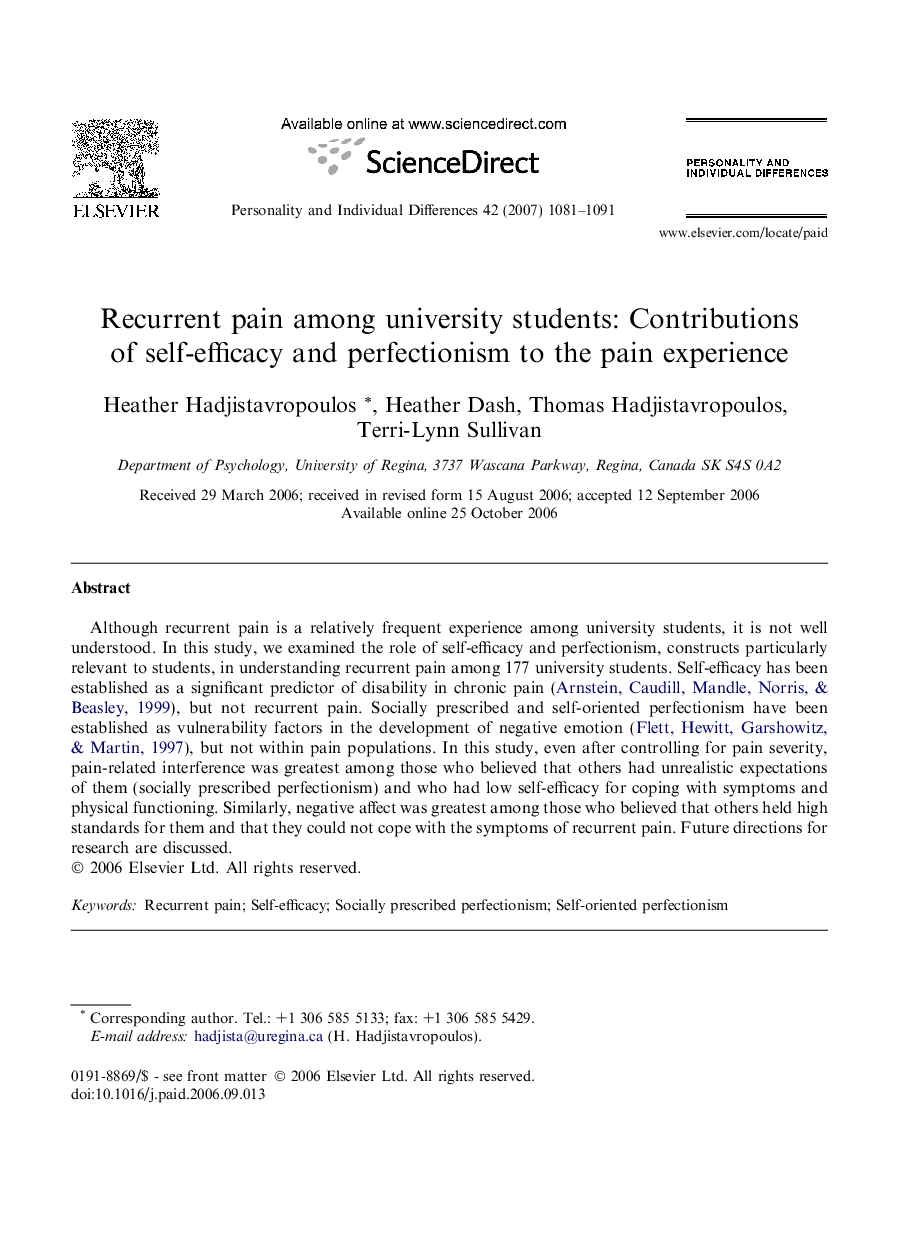| Article ID | Journal | Published Year | Pages | File Type |
|---|---|---|---|---|
| 893199 | Personality and Individual Differences | 2007 | 11 Pages |
Although recurrent pain is a relatively frequent experience among university students, it is not well understood. In this study, we examined the role of self-efficacy and perfectionism, constructs particularly relevant to students, in understanding recurrent pain among 177 university students. Self-efficacy has been established as a significant predictor of disability in chronic pain (Arnstein, Caudill, Mandle, Norris, & Beasley, 1999), but not recurrent pain. Socially prescribed and self-oriented perfectionism have been established as vulnerability factors in the development of negative emotion (Flett, Hewitt, Garshowitz, & Martin, 1997), but not within pain populations. In this study, even after controlling for pain severity, pain-related interference was greatest among those who believed that others had unrealistic expectations of them (socially prescribed perfectionism) and who had low self-efficacy for coping with symptoms and physical functioning. Similarly, negative affect was greatest among those who believed that others held high standards for them and that they could not cope with the symptoms of recurrent pain. Future directions for research are discussed.
